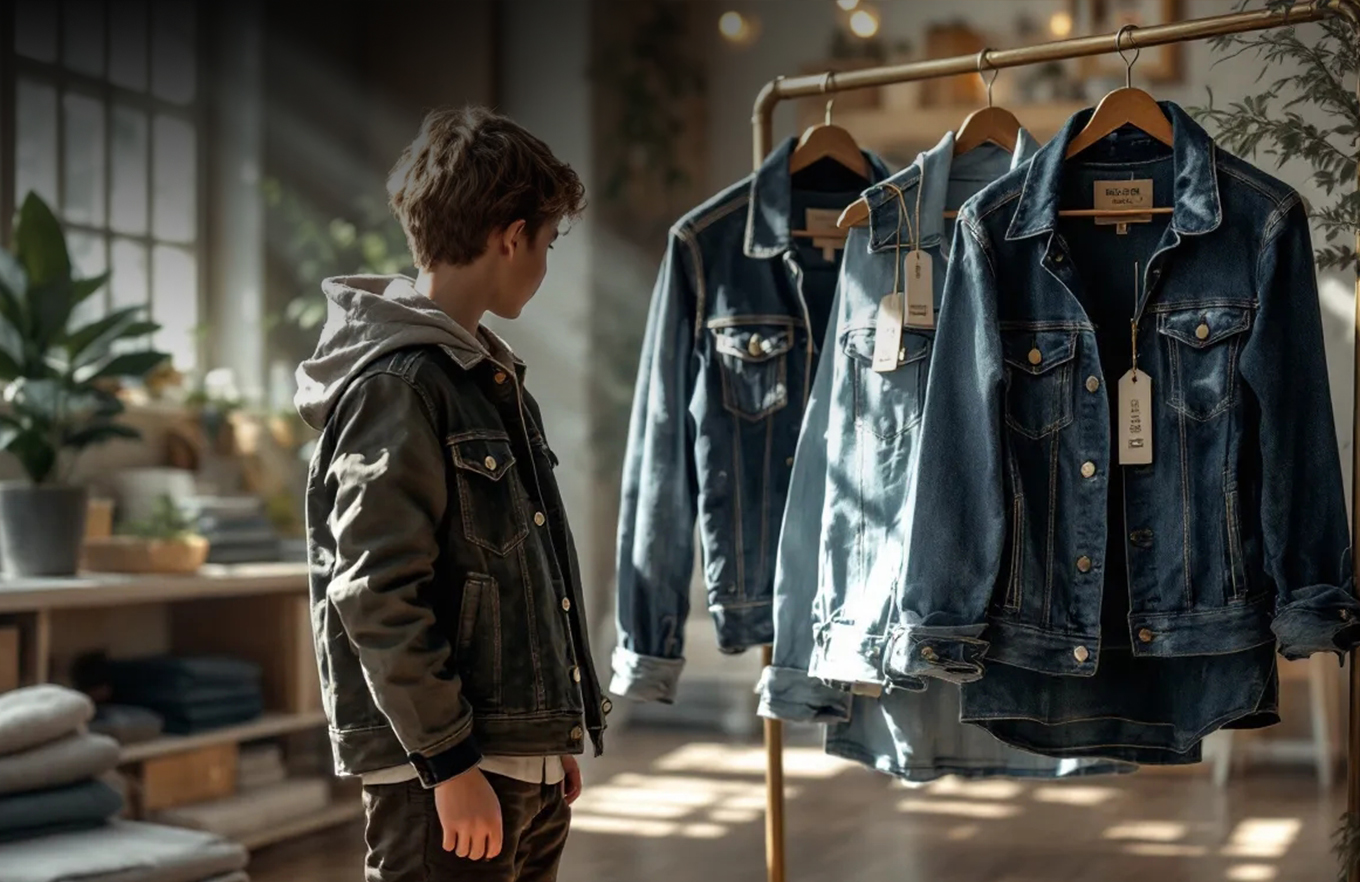September 24, 2025
Sustainable apparel is no longer just a buzzword; it has become the future of the global fashion and textile industry. As consumers increasingly demand eco-friendly and ethical products, brands and manufacturers alike are adapting their operations to stay relevant. Moreover, sustainable apparel isn’t just a trend; it’s a necessity for those who want to remain competitive. For any textile manufacturer in Pakistan, this global shift opens doors to innovation, responsibility, and profitable opportunities in the apparel market.
The global fashion industry has undergone a significant transformation in the last decade. Shoppers are moving away from fast fashion and demanding clothing that reflects both style and responsibility. Sustainable apparel now represents a major growth segment, with projected market valuations crossing hundreds of billions in the coming years.
This rise is fueled by a blend of consumer awareness, government regulations, and international brands committing to lowering their carbon footprints. Textile manufacturers who fail to align with these standards risk being left behind, while those embracing change find themselves at the forefront of a growing movement.
Sustainable apparel matters because it directly addresses critical global issues. Water conservation, renewable energy, chemical-free processing, and recyclable fabrics are all part of this shift. By reducing environmental impact, the apparel industry is contributing to the fight against climate change while also providing healthier options for consumers.
For a textile manufacturer in Pakistan, aligning with sustainable apparel trends builds credibility in international markets. Countries in Europe and North America are now imposing strict sustainability guidelines. By meeting these requirements, local manufacturers gain access to lucrative markets while enhancing their reputation globally.
The use of organic cotton, bamboo, hemp, and recycled polyester is at the heart of sustainable apparel. These materials minimize environmental damage while maintaining durability and comfort.
Manufacturers are adopting waterless dyeing methods, closed-loop recycling systems, and digital printing to reduce waste and pollution. Samad Group, for instance, has invested in modern solutions that enhance sustainability without compromising product quality.
Circular fashion emphasizes reusing and recycling clothing, turning waste into valuable new products. This approach not only reduces landfill waste but also appeals to eco-conscious consumers seeking long-term solutions.
Textile manufacturing is one of Pakistan’s largest industries, contributing significantly to the national economy. With international buyers pushing for sustainable practices, local manufacturers must modernize operations.
Being a leading textile manufacturer in Pakistan, Samad Group has demonstrated how sustainability can be incorporated into the value chain. From sourcing raw materials responsibly to introducing eco-friendly dyeing and finishing techniques, their approach sets an example for others in the industry.
Pakistan’s manufacturers have the advantage of skilled labor and strong infrastructure. However, to fully leverage sustainable apparel market growth, they must integrate eco-friendly innovations into every stage of production.

Consumer preferences are evolving rapidly. Today’s shoppers want transparency about where their clothes come from and how they’re made. They are willing to pay more for sustainable apparel, proving that ethics and profitability can go hand in hand.
This shift in demand is particularly strong among younger generations, such as Gen Z and Millennials, who view fashion as an extension of their values. By aligning with these preferences, textile manufacturers can secure long-term customer loyalty and brand recognition.
Despite its opportunities, the sustainable apparel market faces challenges. The costs of eco-friendly raw materials are often higher than traditional options. Additionally, investing in advanced technologies can be financially demanding for small and medium-sized manufacturers.
However, as global awareness continues to rise, these challenges are turning into opportunities. Governments, international organizations, and even major brands are offering incentives, grants, and partnerships to support manufacturers transitioning to sustainable practices.
For a textile manufacturer in Pakistan, the sustainable apparel industry presents numerous opportunities. Export potential is expanding, as global brands are eager to partner with suppliers who can deliver eco-friendly solutions.
Samad Group, for example, has tapped into international markets by showcasing its commitment to ethical sourcing and innovative textile processes. Such efforts not only strengthen partnerships but also position Pakistan as a reliable hub for sustainable apparel production on the global stage.

The future of sustainable apparel is bright. Industry forecasts suggest that eco-conscious products will dominate market demand within the next decade. As innovation accelerates, costs are expected to decline, making sustainable clothing accessible to a broader audience.
For manufacturers, this means constant evolution and investment in research and development. Embracing sustainability isn’t just about staying relevant; it’s about shaping the future of fashion responsibly and profitably.
Sustainable apparel is no longer an option; it is the standard that global fashion demands. For every textile manufacturer in Pakistan, this is the right time to innovate, invest, and evolve toward greener practices. With companies like Samad Group leading by example, the country has the potential to play a pivotal role in the international sustainable apparel movement.
Contact us today to explore sustainable apparel solutions with global impact and innovation.
Sustainable apparel refers to clothing made using eco-friendly materials and processes that reduce environmental harm while ensuring ethical practices.
It is important because it opens doors to international markets, builds global credibility, and ensures long-term business sustainability.
Samad Group integrates eco-friendly fabrics, advanced manufacturing methods, and innovative technologies to ensure sustainable apparel production.